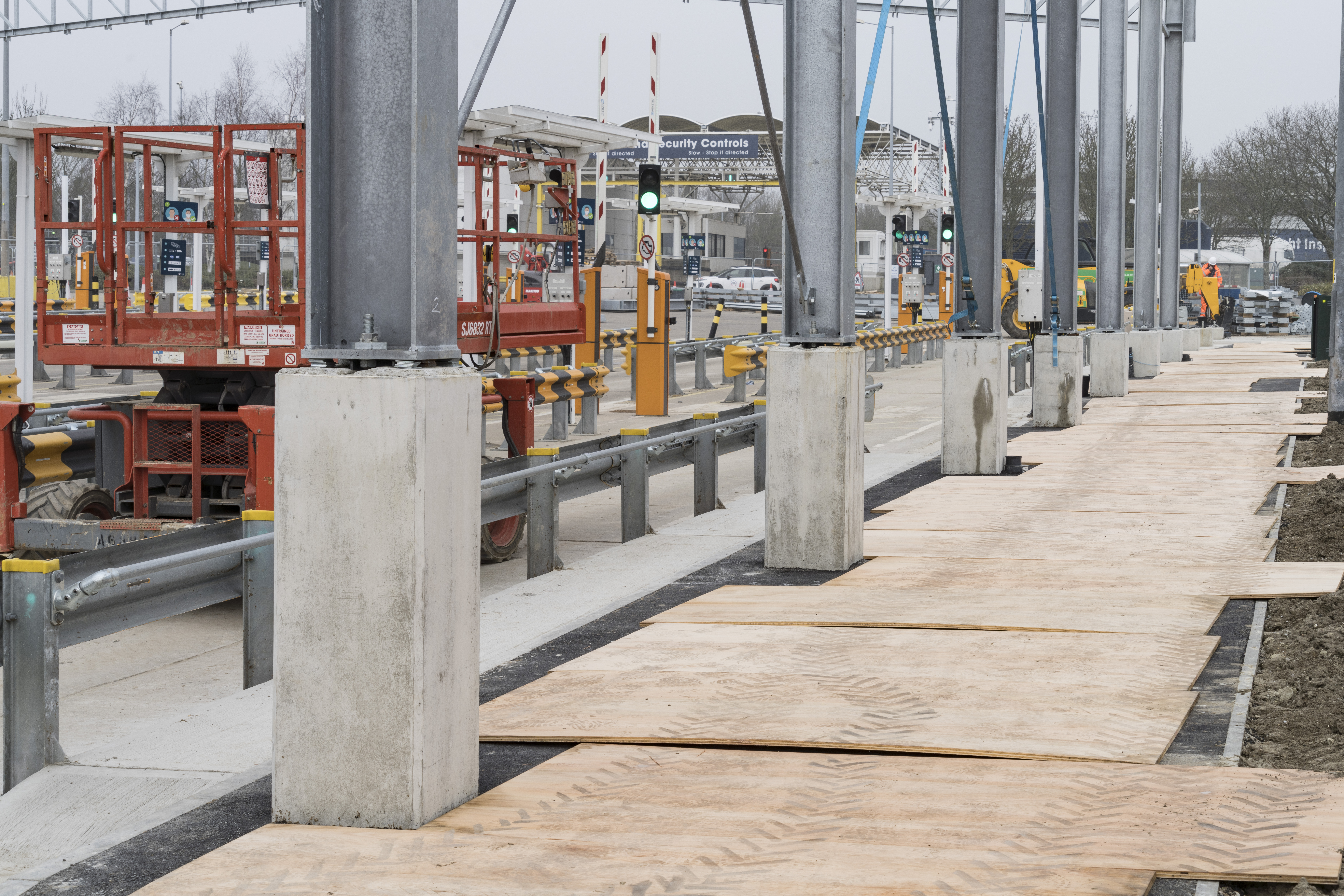Delivering Innovation
As part of Eurotunnel’s preparation, the client had already begun plans to construct a 50m x 46m steel-framed canopy, adding extra approach lanes to accommodate lorries and check paperwork.
FM Conway’s Civil Engineering team was therefore required to construct 33 large reinforced concrete bases and plinths to support the new canopy, as well as widening the approach lanes and building a new staff car park.
The team were required to dig 2.5m deep excavations, predominantly in soft sand, to construct the bases. This required substantial temporary works that had to be designed in-house by FM Conway’s Consultancy team.
However, the project was required to be carried out whilst the check-in lanes remained opened, so a swift resolution was needed. Therefore, the team worked with concrete supplier Brett Concrete to design a self-compacting and fast-curing concrete mix to ensure the check-in lanes could be reopened quickly.
There was also collaboration with the FM Conway Surfacing division who laid a total of 571.5t of material to build the new staff car park, surface the approach lanes and build a new footpath.
All of the material was supplied by the business’ Erith Asphalt Plant, and 90% of the material that was excavated or broken out from the project, including 1,560t of concrete, was sent off to FM Conway’s plants to be recycled.

